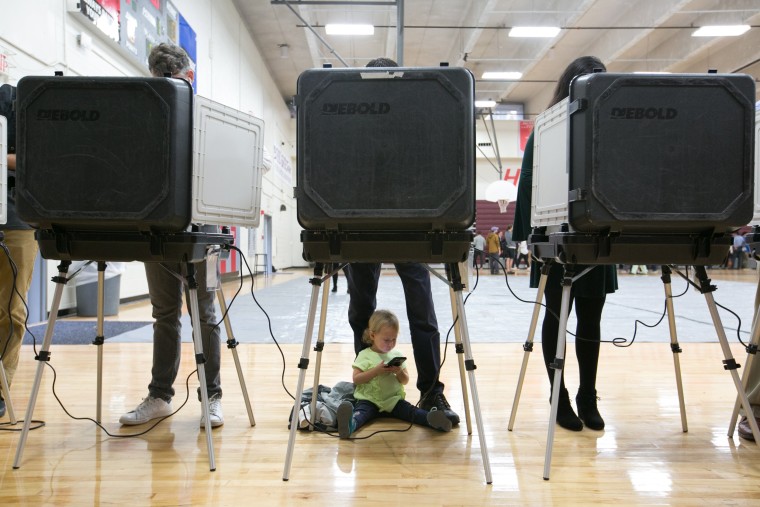As Democrats at the national level push for new protections for voting rights, one of the principal Republican responses is that such protections are wholly unnecessary. Democrats, the GOP argument goes, are overreacting to a threat that does not exist.
"States are not engaging in trying to suppress voters whatsoever," Senate Minority Leader Mitch McConnell (R-Ky.) insisted this week. Sen. Roy Blunt (R-Mo.), another member of the Senate GOP leadership, added that the whole idea is a "false narrative."
That was Wednesday morning. This was Thursday afternoon.
Georgia Republicans passed restrictive changes to the state election process Thursday after weeks of debate about how to tighten voting laws.... Republican Gov. Brian Kemp signed the bill into law immediately, calling it "common sense" legislation while aligning himself with former President Donald Trump in remarks promoting the bill.
The new state law is many things, but subtle is not one of them. Georgia Republicans have made it harder to cast ballots through drop boxes. And made it harder to cast absentee ballots. And made it illegal to bring water to voters forced to wait in long lines -- lines that will now be even worse as a result of the GOP's new election laws.
Perhaps most importantly, as Rachel explained in detail on last night's show, the Republican-led legislature has also given itself new powers over local election boards, raising the prospect of nightmare scenarios in which legislators reject results they disapprove of.
When I first started making notes about what Georgia has done, I initially wrote that Republicans did this for no reason -- Georgia's own Republican election officials have freely acknowledged that there were no irregularities with the state's 2020 elections. Legislators set out to fix a "problem" that did not exist.
But I quickly realized that this was far too charitable an assessment. There is absolutely a reason: Democrats won some key races in Georgia, which, in the eyes of the state's GOP officials, made an attack on voting rights necessary.
It couldn't be simpler: when democracy disappoints Republicans, the system itself becomes a target. GOP officials could respond to defeats by adapting to a changing landscape -- broadening their reach, moderating their platform, taking a renewed interest in responsible governance -- but they find it vastly easier and more satisfying to erect new barriers between Americans and their democracy.
In the not-too-distant past, Georgia's new anti-voting law wouldn't have been permissible under the Voting Rights Act. Supreme Court Chief Justice John Roberts helped gut that law, clearing the way for abuses like the one Brian Kemp signed into law last night in a closed-door ceremony.
Voting-rights advocates nevertheless hope the judiciary may offer some relief. Marc Elias, who won 62 cases last year defending the results of the 2020 presidential election, has already announced a lawsuit challenging Georgia's new anti-voting law.
"Today, democracy was assaulted," Elias, the elections lawyer, said Thursday night on MSNBC, adding that he was filing the lawsuit on behalf of the New Georgia Project, Black Voters Matter, and Rise, a student group. "These laws are all aimed at disenfranchising Black voters and also young voters," Elias said on "The Rachel Maddow Show."
One can also hope that skeptics of the Democrats' "For the People Act" -- Sen. Joe Manchin (D-W.Va.), I'm looking in your direction -- take note of this attack on the franchise. When proponents of S. 1/H.R. 1 say they're trying to protect the core of our democracy, they're not being overdramatic or hysterical. The threat is not hypothetical or speculative.
The attack on voting rights is as unambiguous as it is dangerous, but just as importantly, it's ongoing. The most serious national effort to undermine voting rights in recent memory is happening before our eyes, and it warrants a swift response.

